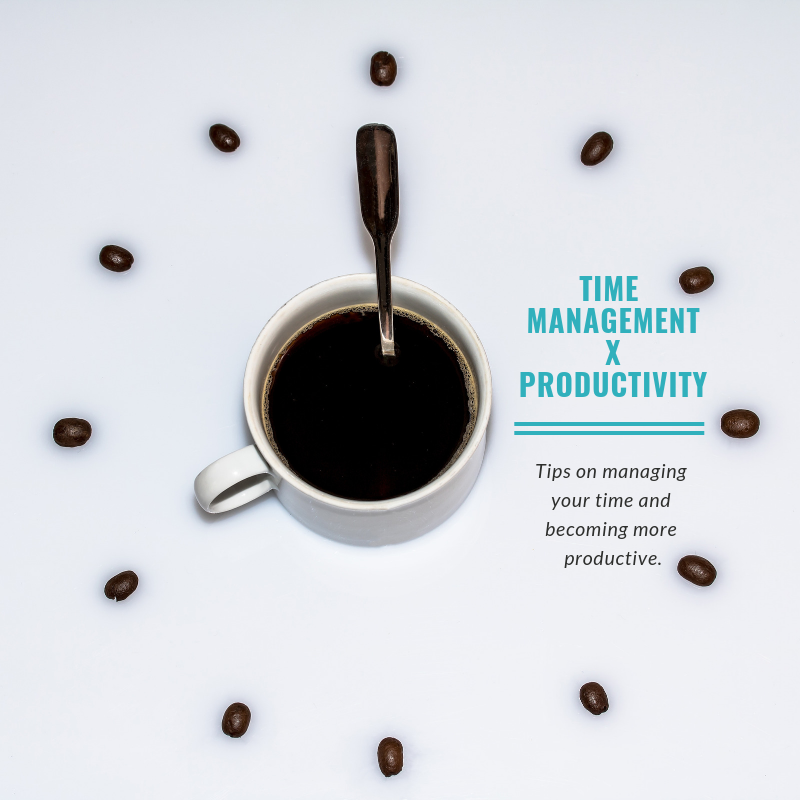5 Steps to Beat Procrastination
Procrastination: the action of delaying or postponing something.
Let’s face it, everyone at some point in their life have procrastinated on something. Whether it was homework, a big paper, studying for finals, going to the gym, completing a report that just “isn’t that important” at work, etc., you get my point.
Whether it’s intentional or situational, it happens. Nowadays, most of us face the challenge of having to multitask in our daily lives. Some are in school, or have 2 jobs, or both. Maybe you’re a single parent who works & maybe also goes to school. Or maybe you’re the type of person who can’t say no and is constantly running around trying to keep up with the schedule you’ve created. Whatever the case, your life is yours to live however you’d like, but sometimes, because we get so busy, we get burned out and in comes the procrastination.
Some may procrastinate in making personal decisions; small or big, some may procrastinate on professional/academic projects, homework or other tasks and some may procrastinate on life changes (really big stuff).
Now, if you struggle with multiple of those things; you’re not alone. Our minds and bodies can only take so much and believe it or not, we procrastinate because a) we simply don’t want to do something or b) are extremely tired and need a physical and mental break. However, procrastinating tends to add to your stress levels which then leaves you feeling even more exhausted.
Okay, so now that we know why it happens and accept that IT HAPPENS, how do we become more aware of it and manage it to the best of our ability. Key words: best of your ability. Which means please do not compare yourself to others.
The following steps to manage procrastination are a great start. I say great start because you never want, with any goal you set, to start too big or broad. You want to break goals down to tasks so they’re manageable, effective and realistic to setting yourself up for success.
Step 1: Identify all commitments and tasks. I suggest breaking these up in personal and professional columns. That way, you are able to visibly see what you need to get done to meet your goals personally and professionally.
Step 2: Create deadlines. Most work or school related items will already have deadlines, but what if you give yourself an earlier due date for these items? 1. It can help you prioritize your time with personal items and 2. It gives you a time cushion where you can go back and edit so you’re not freaking out last minute. Now for your personal “To-do’s”, create a schedule for yourself and if you are working on a personal project, give yourself deadlines. This will help you see progress and make you feel accomplished, which will ultimately make you feel good and trigger your brain to continue on this path without procrastination.
Step 3: Don’t forget about yourself. Remember the burn out I mentioned earlier? Well, if you don’t make time in your daily schedule to nurture your body and mind, you will ultimately exhaust yourself and feel like doing absolutely nothing. Think of a few things that help you relax, write them down and make sure you do not skip over them during the next step.
Step 4: Put it in a calendar. Visuals are effective!! Grab a desk calendar or planner and transcribe the schedule you identified in the steps above. Use different color pens to distinguish activity or place. Not able to look at physical calendar at all times? add reminders in your phone and put important dates on your calendar with alerts so that you know something is coming up.
Step 5: Keep yourself accountable. This is most likely the hardest part of it all, but don’t worry I have a couple of tips that may help you out.
Tip 1: Write out your WHY. Ask yourself “Why is it important to stick to my schedule?”, “How is this going to make my life easier?”, ”How is this going to make me feel and why is it important?”. Once you have your “WHY” written down, put it someplace that you can easily access it so that on the days that you are feeling off, you can read your “WHY” and hopefully get back into the swing of things.
Tip 2: Ask for help. Ask someone you trust, a friend, a relative, a partner, a coach, to help in keeping you accountable. In the begging, it may be hard to keep yourself accountable. So why not ask someone to help you out? Maybe someone you know and are close to have similar needs and you can keep each other accountable. Give it a try!
Unlearning the habit of procrastination isn’t easy. It takes amplifying your time management, organizational and accountability skills to counter the feeling of “I’ll do it later”. I do however believe we all have it in us, we just really need to have our “WHY” in order to understand the importance of it all.
Are you ready to kick this procrastination habit?





